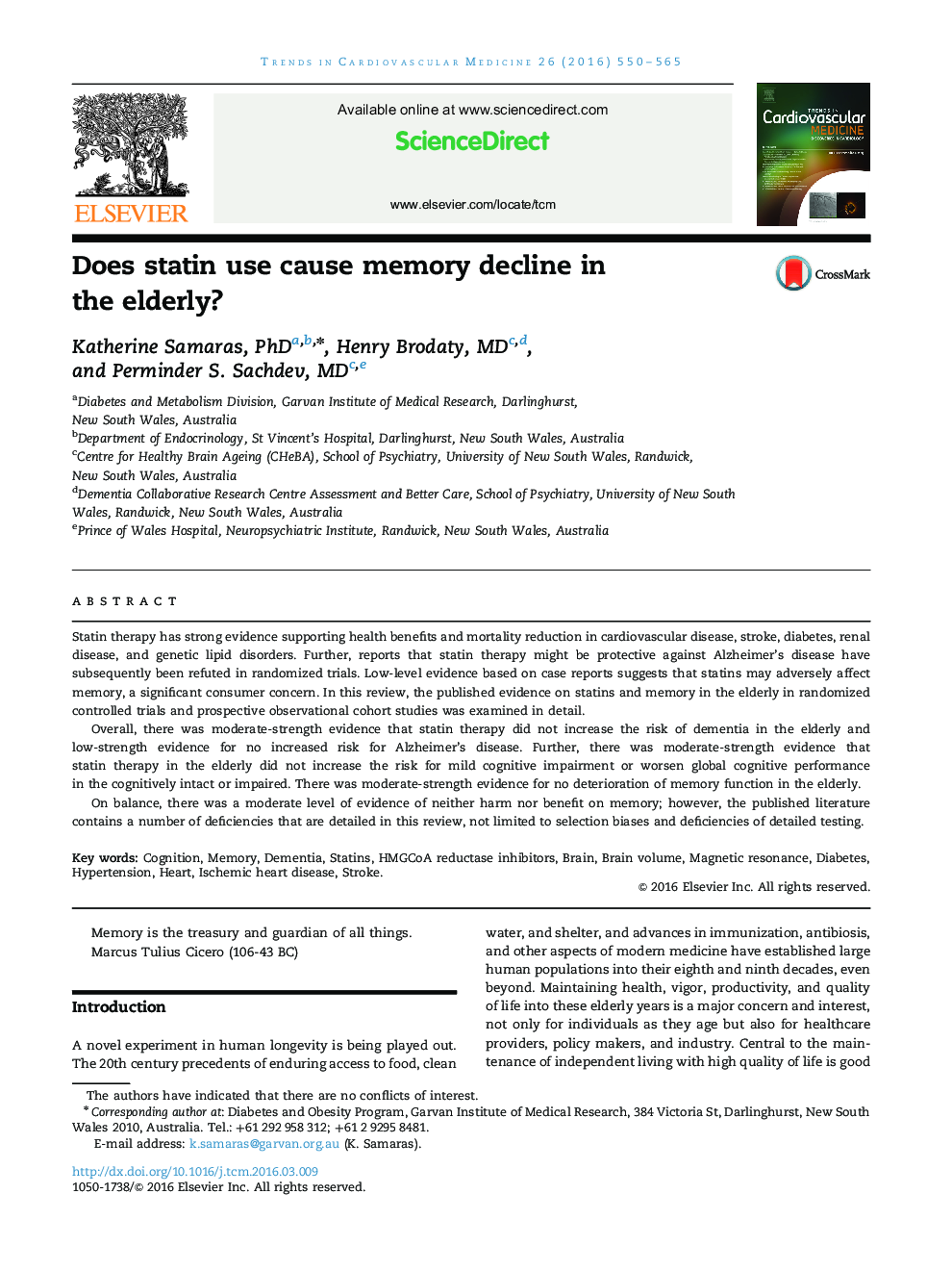| Article ID | Journal | Published Year | Pages | File Type |
|---|---|---|---|---|
| 3031093 | Trends in Cardiovascular Medicine | 2016 | 16 Pages |
Statin therapy has strong evidence supporting health benefits and mortality reduction in cardiovascular disease, stroke, diabetes, renal disease, and genetic lipid disorders. Further, reports that statin therapy might be protective against Alzheimer’s disease have subsequently been refuted in randomized trials. Low-level evidence based on case reports suggests that statins may adversely affect memory, a significant consumer concern. In this review, the published evidence on statins and memory in the elderly in randomized controlled trials and prospective observational cohort studies was examined in detail.Overall, there was moderate-strength evidence that statin therapy did not increase the risk of dementia in the elderly and low-strength evidence for no increased risk for Alzheimer’s disease. Further, there was moderate-strength evidence that statin therapy in the elderly did not increase the risk for mild cognitive impairment or worsen global cognitive performance in the cognitively intact or impaired. There was moderate-strength evidence for no deterioration of memory function in the elderly.On balance, there was a moderate level of evidence of neither harm nor benefit on memory; however, the published literature contains a number of deficiencies that are detailed in this review, not limited to selection biases and deficiencies of detailed testing.
